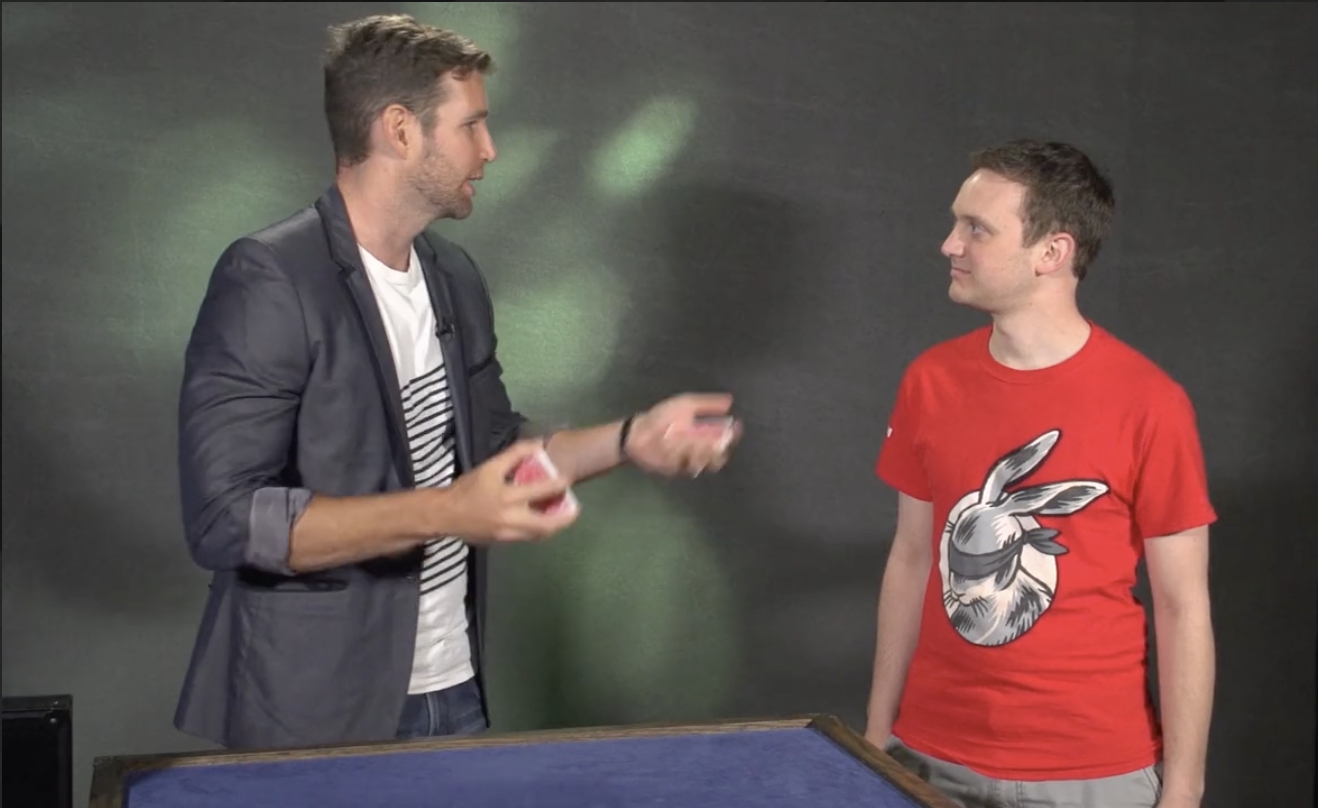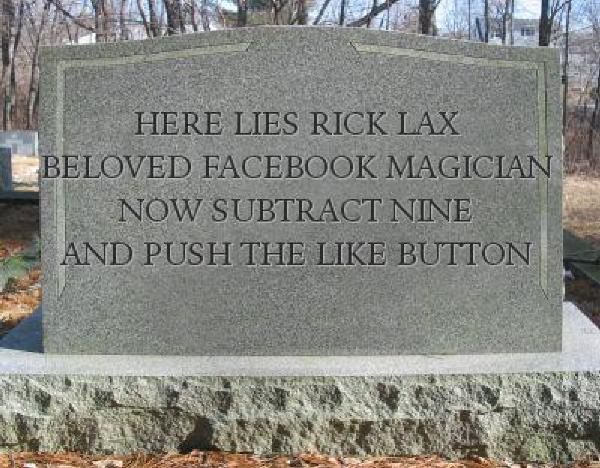On Leading Reactions
/If, like me, you enjoy performing effects where you are not claiming to be the prime mover behind making the magic happen, then you need to learn how to properly react to your effects. I see this bungled far too often, and it's something I used to not be very good at myself because it was something I failed to think about.
Then, one night, I was at a bar in NYC and a guy I was there with had one of those pens that tips over after a while. He balanced the pen on the mouth of a beer bottle and said to one of the girls who was with us, "I want you to concentrate and send your energy to that pen." Now, that's fine. It's not some great presentation by any means, and I have my own thoughts on Spectator as Magician/Mentalist that this doesn't really align with, but that's a post for another day.
So this girl looks at the pen, nothing happens, the guy says "really concentrate," she continues looking and the pen falls. Her mouth drops open and she turns to the guy and he kind of smirks and raises an eyebrow. And her reaction immediately changed. She pointed at him and said in a sing-songy voice, "That's a good one."
I watched her go from thinking something crazy had just happened to knowing it was a trick, just based on this guy's reaction. Or lack thereof. That's the point: You have to react.
If you're playing the part of the traditional magician, then feel free to play it cool after the effect.
But if you're rejecting that role and instead you're showing them some strange object you found, or trying some experiment you read about, or doing something where they are manifesting the power, then you NEED to react, or the whole experience falls apart. Not reacting is just another way of saying, "That was me. I did that. I'm special." If that's your plan, just take credit for it from the beginning. That's a lot less scuzzy than this route which amounts to, "I'm going to put the focus on you [or some external thing] to capture your attention, but then when we're done I'm going to take the credit for it."
Whatever experience you're creating, if you're not taking direct responsibility for it, then it has to move you too. Why would you show someone something if the outcome of that thing had no affect on you?
Yeah, but Andy, why would I have her concentrate on the pen unless I know she would knock it over?
Well, that's the question you have to account for in your presentation. Maybe you have some conceptually intriguing idea behind your presentation. But you don't necessarily need one. It can just be, "Can we try this thing I read about? I've been trying it all day, but it's supposed to work better with someone like you." [Someone younger, older, left-handed, female, male, smarter, dumber, more intuitive, or whatever.]
The thing is, if you just act like you knew she'd be able to knock it over, then you're still playing the role of the magician. Except now your magic power is a stupid one. It's "being able to identify people who can knock over a pen with their mind."
But if the pen falls and you bring the fingers of both hands to your temples and—with your eyes wide—laughingly say, "What. The. Fuuuuuuuu... Are you kidding me?!" you're going to prolong the moment of mystery. Your reaction is a universal rep that you can use for most tricks.
When your reaction is in harmony with the trick, you extend and amplify the experience of mystery for the spectator. If it's not, you just let them off the hook.
You may feel uncomfortable because you think I'm suggesting you totally flip out or something. That's not what I'm saying (unless it's the type of trick that causes them to flip out, then I recommend you join in with their reaction). Here is the key regarding how to react. You want to consistently react a little bit stronger than they are. That is what I mean by "leading reactions." You are setting the pace. What I've found, particularly if I'm showing something to someone for the first time, is that people tend to be guarded with their reactions. Even if they see something amazing some people can feel, "Am I stupid for thinking that's amazing." So sometimes it will be your reaction that gives them the permission to lose their shit.
Again, you're meant to be leading. So I imagine it like leading someone on a walk through the woods. If you're behind them they can't follow you at all. If you sprint out way ahead of where they are, you can't guide them. But if you stay a little bit ahead and lead the way, you can show them someplace new and bring them somewhere they may never have gotten to on their own.













